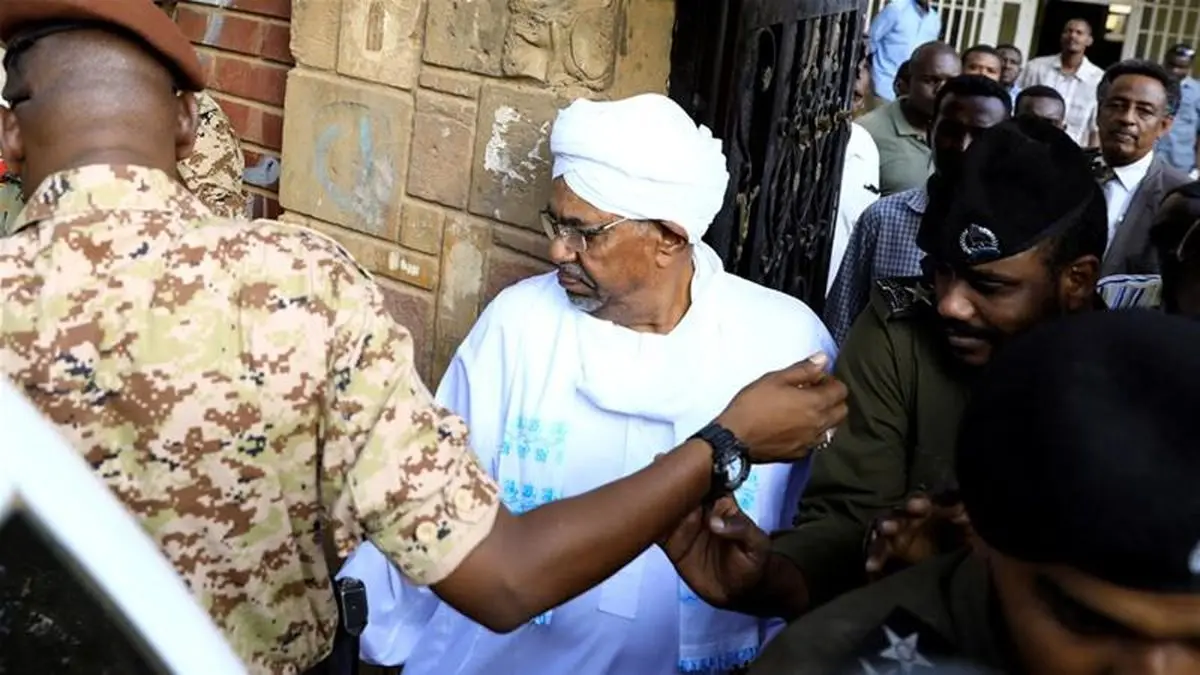Scepticism as Sudan moves to put Omar al-Bashir on trial

Sudan's former President Omar al-Bashir has appeared in public for the first time since his overthrow by the military following months of mass protests against his 30-year-long autocratic rule.
Dressed in a white robe and turban, the toppled leader was seen on Sunday as he was escorted under heavy guard from a maximum security prison in Sudan's capital Khartoum to the prosecutor's office. There, prosecutors informed him he faced charges of "possessing foreign currency and acquiring suspicious and illicit wealth", according to the official SUNA news agency.
He was given one week to raise objections, questioned on additional unspecified corruption charges, and taken back to Kobar prison.
If al-Bashir does not appeal, he could appear in court as early as next week, Sudan's acting Chief Prosecutor Alwaleed Sayed Ahmed said on Saturday.
In Khartoum, the moves against the 75-year-old former president triggered derision and scepticism from critics who dismissed it as an attempt by Sudan's new military rulers to deflect attention from a recent bloody crackdown on protesters, as well as its reluctance to cede power to a civilian-led transitional administration.
They also questioned the likelihood of al-Bashir receiving a fair trial in Sudan or being held accountable for the most egregious of charges against him. The former leader, who came to power in a coup in 1989, is wanted by the International Criminal Court (ICC) on charges of crimes against humanity and genocide relating to abuses by Sudanese forces in the country's Darfur region between 2003 and 2008.
Instead, al-Bashir's first trial looks set to be on charges of violating a decree he imposed in February as part of an effort to quell anti-government protests sparked by rising food prices and a currency crisis. At the time, as protests gathered pace across the country, al-Bashir had imposed a state of emergency and made it illegal to carry more than $3,000 in foreign currency.
But shortly after he was overthrown on April 11, the Transitional Military Council (TMC), which replaced the former leader, said security forces had seized more than $113m worth in cash in three currencies from his residence.
If al-Bashir is found guilty of violating the emergency decree, he could face at least 10 years in prison.
END
